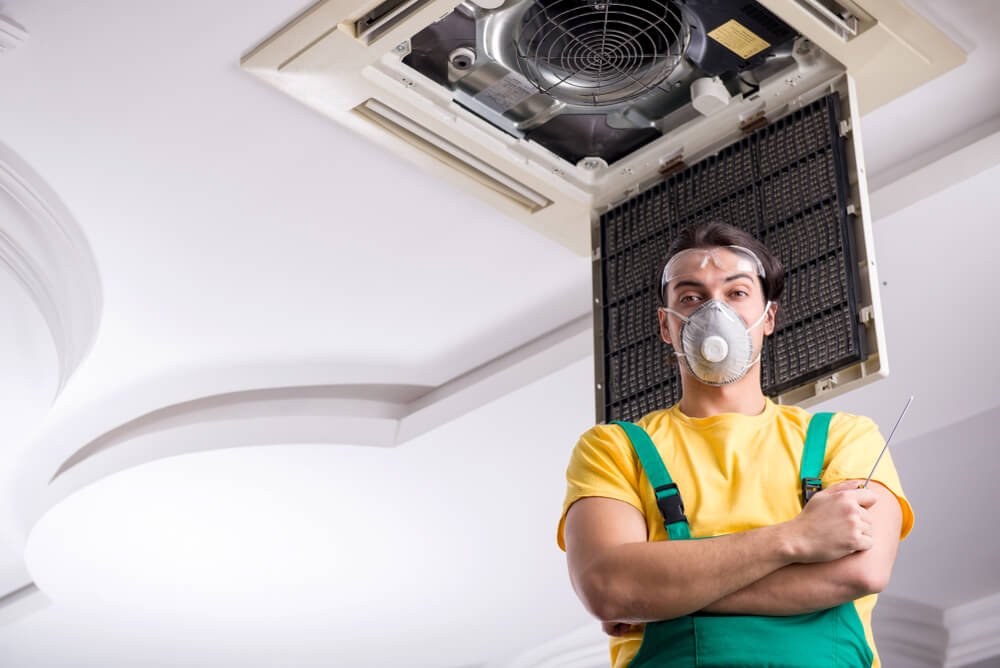Have you ever turned on your air conditioning only to be greeted by a foul odor? It’s a common issue that many homeowners and business owners face. Understanding why your air conditioning smells bad and how to troubleshoot it is essential for maintaining a comfortable and healthy indoor environment. In this guide, we explore the various causes and solutions to this unpleasant problem.

Understanding the Source of the Smell
The first step in solving any problem is understanding its root cause. When it comes to bad smells from an air conditioning system, several factors could be at play. Identifying the specific source of the odor is crucial for effective troubleshooting.
Common Causes of Bad Smells
There are several reasons why your AC unit might emit unpleasant odors. Some common causes include:
- Mold and Mildew Growth: Moisture in the system can lead to the growth of mold and mildew, causing a musty smell. For more on this, visit mold in HVAC.
- Clogged Drains: A clogged condensate drain can lead to water accumulation, which contributes to bad odors.
- Dirty Filters: Dust and debris buildup in filters can cause a musty or dusty smell.
- Burning Odors: Electrical issues or overheating parts can emit a burning smell.
Step-by-Step Troubleshooting
Once you’ve identified the potential causes, it’s time to troubleshoot. Here’s a step-by-step guide:
1. Inspect and Clean Filters
Start by checking your air filter. A dirty filter can not only cause bad smells but also reduce system efficiency. Replace or clean filters regularly to maintain air quality.
2. Check for Mold and Mildew
Mold and mildew are common culprits for musty odors. Regular cleaning and maintenance can prevent their growth. For maintenance tips, see mold maintenance tips.
3. Clear the Condensate Drain
A clogged drain can cause water to back up and create odors. Clear the drain regularly to prevent this issue.
Preventive Measures
Prevention is always better than cure. Here are some tips to prevent odors from occurring:
Regular Maintenance
Regular maintenance is key to preventing bad smells. Schedule annual checkups with a professional to ensure your system is running efficiently.
Use Quality Filters
Invest in high-quality filters to trap dust and allergens effectively. This can help maintain clean air and prevent odors.
Monitor Humidity Levels
High humidity levels can lead to mold growth. Use a dehumidifier if necessary to keep humidity in check.
When to Call a Professional
While some issues can be resolved with DIY methods, there are times when professional help is necessary:
Persistent Odors
If bad smells persist despite your efforts, it’s time to call a professional. They can diagnose and fix the issue more effectively.
Complex Repairs
Electrical issues or complex repairs should always be handled by a qualified technician to ensure safety and proper functioning.

Frequently Asked Questions
Why does my AC smell musty?
A musty smell often indicates mold or mildew growth. Regular cleaning and maintenance can help prevent this issue.
Can a dirty filter cause a bad smell?
Yes, a dirty filter can cause a musty or dusty smell and reduce system efficiency. Regularly replacing or cleaning filters can prevent this problem.
When should I call a professional?
If you notice persistent odors or complex issues, it’s best to call a professional for diagnosis and repair. For further guidance, visit Trane’s troubleshooting guide.
In conclusion, addressing bad smells from your air conditioning system requires understanding the cause and taking appropriate actions. Regular maintenance and timely troubleshooting can help keep your indoor environment fresh and comfortable. For more detailed inspection tips, check out odor inspection guide.
This article contains affiliate links. We may earn a commission at no extra cost to you.